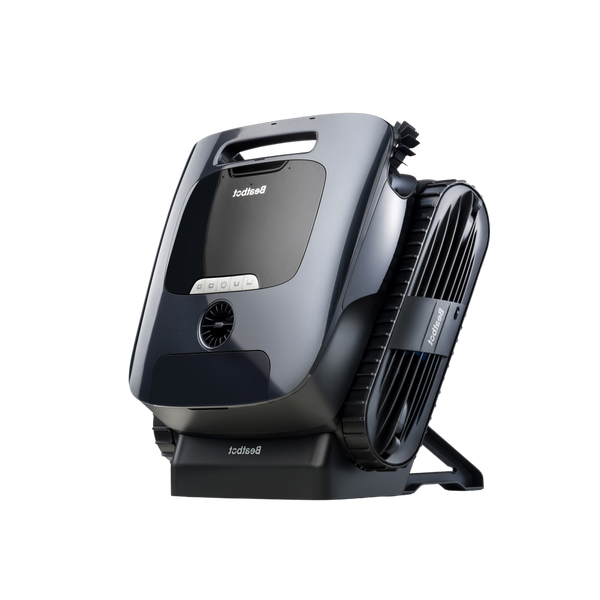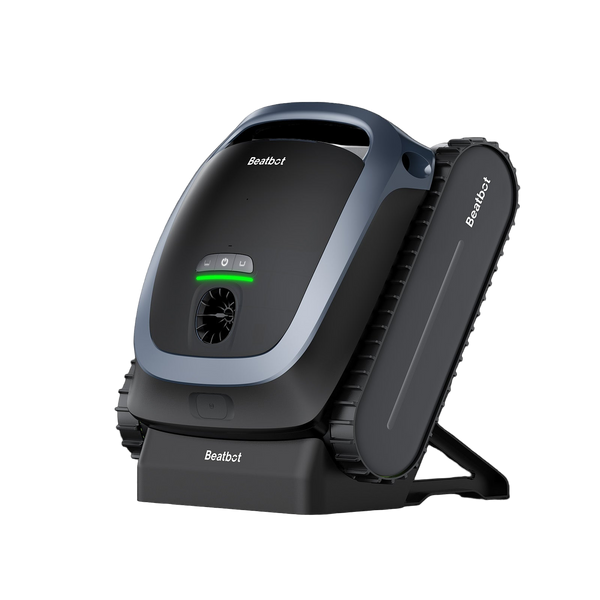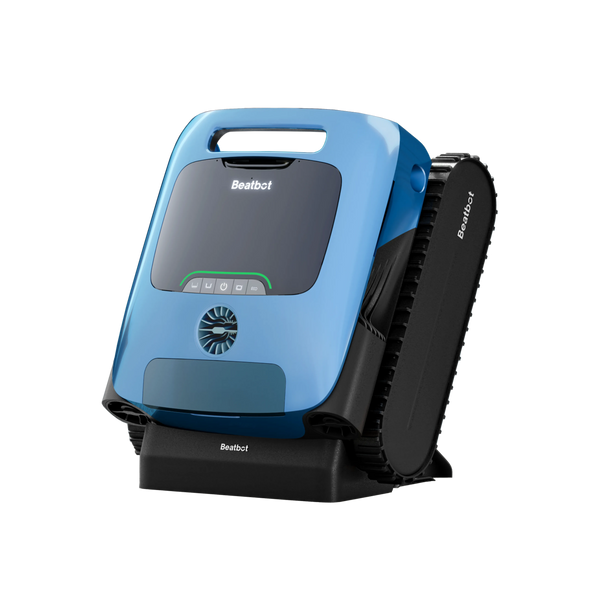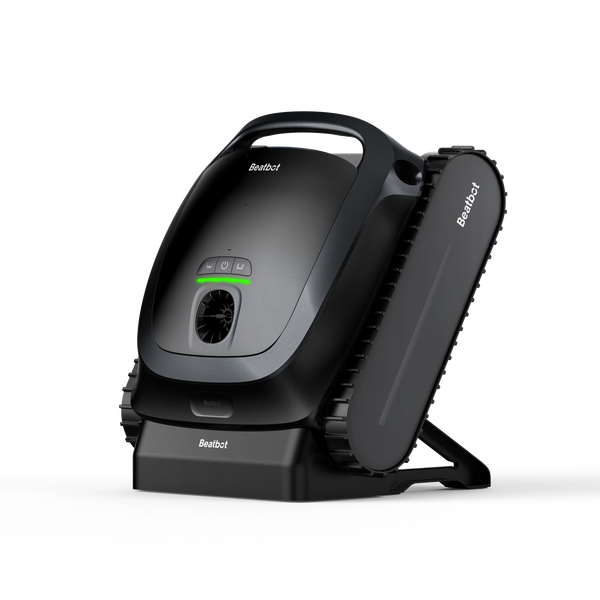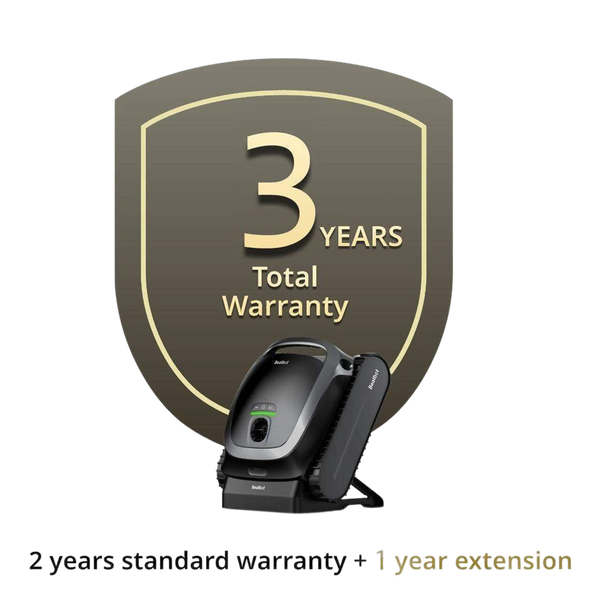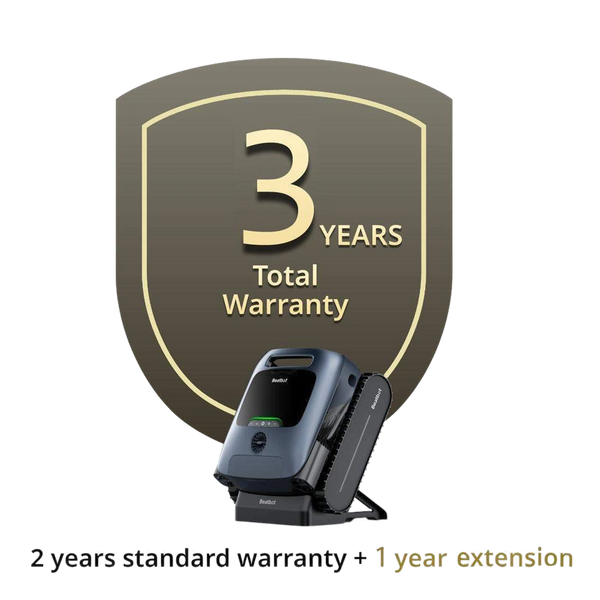Pool Cleaning Robots: The New Age of Pool Maintenance
Pool ownership comes with its share of joys and responsibilities. While a sparkling, well-maintained pool can be a source of relaxation and entertainment, maintaining it can feel like an endless task—especially when faced with debris buildup, algae growth, or other maintenance issues. Traditionally, pool care has been a manual, labor-intensive process that requires time, energy, and expertise. However, with the rise of pool cleaning robots , maintaining a pool has never been easier or more efficient. These intelligent devices are transforming pool maintenance, making it easier for homeowners to keep their pools in pristine condition with minimal effort.This article will explore how pool cleaning robots help improve maintenance efficiency, extend the lifespan of pools, and ensure clean, safe water. We will also discuss how these robots help maintain proper water circulation, filter cleaning, and other crucial aspects of pool care.
Table of contents

A Comprehensive Guide to Maintaining New Pools to Extend Their Lifespan
When you first install a pool, proper maintenance is essential not only to keep it looking great but also to extend its lifespan. Regular cleaning and care prevent long-term damage and help avoid expensive repairs.
A new pool’s surface, walls, and pool equipment are in pristine condition, but over time, debris and organic material like leaves, dirt, and pollen can accumulate, causing wear and tear. If left unaddressed, these contaminants can lead to stains, algae growth, and even structural damage.
Pool cleaning robots offer an ideal solution for maintaining a new pool. These robots are designed to automatically clean debris from the pool floor, walls, and waterline, reducing the need for manual intervention.
By consistently removing leaves and other organic matter, a pool cleaning robot helps prevent the buildup of harmful substances like algae, which can be difficult to remove once established. As a result, your pool will remain in excellent condition, and its equipment will last longer, ultimately saving you money on repairs and replacements.
Additionally, by regularly using a pool cleaning robot, you reduce the frequency of manual scrubbing and the risk of chemical imbalances. As the robot cleans, it helps circulate the water, ensuring that any cleaning chemicals used are distributed evenly, preventing potential damage to the pool’s surface.
The Importance of Cleaning Filters and Proper Circulation for Pools
Role of the Filtration System
The filtration system keeps pool water clean by removing dirt, debris, and chemicals. The filter captures particles, while the pump circulates the water to ensure every area of the pool is covered.
Importance of Regular Cleaning
Filters need to be cleaned regularly, as debris buildup can reduce efficiency. If the filter becomes too dirty, water circulation slows down, and water quality deteriorates.
Role of Circulation
Proper water circulation is essential to prevent dead spots where contaminants can accumulate. Without adequate circulation, certain areas of the pool can become breeding grounds for algae and bacteria.
Pool Cleaning Robots' Contribution
Pool cleaning robots help by providing extra circulation and capturing fine particles that the main filter might miss. They ensure water flows more evenly throughout the pool, enhancing the filtration system’s overall effectiveness.
Benefits for Pools with Heavy Debris
For pools surrounded by trees or those prone to heavy leaf and pollen accumulation, robots can ease the strain on the main filtration system. They collect large debris, such as leaves and branches, preventing them from clogging the filter and ensuring only fine particles reach the filtration system.
How Do Robotic Pool Cleaners Work, and What Are Their Typical Components?
Robotic pool cleaners revolutionize pool maintenance by offering an efficient, hands-off cleaning solution. Operating primarily through electricity, these smart devices connect to a power source outside the pool. For wired models, this involves a long power cord linking the robot to the mains, allowing it to function independently from the rest of the pool’s filtration system.
Key Components of Robotic Pool Cleaners:
Power Supply : Most models plug into an electrical socket to operate, ensuring consistent energy flow. Some advanced models feature rechargeable batteries, offering cordless convenience and eliminating trip hazards associated with cords.
Filtration System : Once submerged, these robots roam the pool, diligently scrubbing the floor and walls. They collect debris in an onboard container, which may be a canister, tray, or bag, effectively filtering dirt from your pool.
Mobility and Sensors : Equipped with advanced sensors, these cleaners efficiently navigate the pool surface, ensuring thorough coverage without manual guidance.
When choosing a robotic cleaner, ensure it's suitable for your pool’s dimensions, as models are often designated for specific pool sizes. This attention to detail helps maintain optimal performance and longevity.
Repairing Pool Leaks: Why It’s Important and How to Fix Them
Pool leaks are a common problem that can result in wasted water, higher utility bills, and potential damage to the pool’s structure. Small leaks can go unnoticed for long periods, causing water loss that may be hard to detect until the damage becomes significant.
Early detection of leaks is crucial for preventing further damage and reducing repair costs.While a pool cleaning robot cannot directly fix leaks, it plays an important role in identifying potential issues. Many robots are equipped with sensors that can detect changes in water levels or other irregularities.
For example, if the robot’s cleaning schedule is interrupted by an unusually low water level, this could indicate a leak or malfunction in the pool’s plumbing or equipment. By noticing these changes early, you can address potential issues before they become major problems.When leaks do occur, it’s essential to address them promptly. Pool leaks can result from cracked pipes, damaged seals, or even aging pool materials.
The longer you wait to fix a leak, the more likely it is that the issue will worsen, leading to higher repair costs. In some cases, persistent leaks can lead to the growth of mold or mildew, which can be hazardous to your health and the pool’s structure.If you notice a drop in the water level while using the robot, it’s a good idea to have a professional inspect the pool for leaks. Catching the issue early can save you time, money, and prevent costly damage.
How Do Robotic Pool Cleaners Handle Different Pool Types and Surfaces?
Robotic pool cleaners offer a smart solution for maintaining all kinds of pools—whether in-ground or above-ground. Their advanced technology allows them to adapt to various pool types and surfaces with ease, ensuring an efficient clean every time.
Versatile Cleaning Across Different Surfaces
Robotic cleaners are equipped with sophisticated software and sensors that help them navigate different surfaces like vinyl, tile, fiberglass, and concrete. These devices use intelligent algorithms to map your pool and optimize their cleaning paths, effectively covering every corner and surface without missing a spot.
Specialized Brushes and Tracks
Many models come with specialized brushes and tracks that enhance their cleaning capabilities. Rubber or PVC brushes are great for gently scrubbing delicate surfaces like vinyl, while more robust brushes tackle tough grime on concrete or tile. Additionally, some advanced models feature tracks instead of wheels, providing optimal grip and maneuverability, allowing them to climb walls and even stairs effortlessly.
Adaptable Cleaning Modes
Robotic pool cleaners often offer customizable cleaning modes suitable for different pool shapes and sizes. You can select spot cleaning for trouble areas or full-cycle cleaning for comprehensive maintenance. These adaptable settings ensure that your robotic cleaner handles varying pool designs, whether you have a modest backyard pool or a lavish resort-style one.
Effortless Handling of Debris
Whether dealing with small pebbles, leaves, or fine dirt, robots come with large filter bags or baskets. This capacity allows them to efficiently trap and store debris of all sizes, reducing the frequency of manual filter cleaning. Many models are also cordless, making them incredibly easy to charge and deploy.
Independent Operation
Most importantly, robotic pool cleaners operate independently of the pool’s filtration system. This means they won’t clog your skimmer or put additional strain on your filtration pump. Instead, they use internal filter mechanisms to keep your pool sparkling clean, saving time and energy while providing a worry-free cleaning experience.
In summary, robotic pool cleaners are designed to tackle a variety of surfaces and pool types with ease. Their adaptability and efficiency make them an invaluable tool for any pool owner aspiring for a hassle-free maintenance routine.
The Importance of Protecting Pool Water Levels
1. Operational and Safety Importance
Maintaining the correct water level in a swimming pool is crucial for both operational and safety reasons.
2. Impact on Equipment Function
The water level must be high enough to ensure the skimmer functions properly; a low water level can cause the skimmer to run dry, potentially damaging the pump and filtration system.
3. Impact on Pool Structure
Improper water levels can affect the overall structure of the pool, especially in vinyl-lined pools, where uneven water levels can cause the liner to shift or wrinkle.
4. Role of Pool Cleaning Robots
Pool cleaning robots help maintain appropriate water levels by ensuring that the cleaning process does not inadvertently cause fluctuations in water levels.
5. Design Considerations
Many robots are designed to operate at specific depths, so they won’t cause excessive water displacement during their cleaning cycles.
6. Issue Identification
Robots can assist in identifying water level issues during regular use. A sudden significant drop in water level could indicate a leak or evaporation due to extreme weather conditions.
7. Consistent Water Level Maintenance
Keeping a consistent water level helps to prevent damage to the pool’s structure, protect equipment, and ensure that the filtration system works efficiently.
The Cost of Pool Maintenance
The initial investment in a pool cleaning robot can seem high, but it offers long-term cost savings that far outweigh the upfront cost.
Manual pool cleaning can be time-consuming, especially for larger pools or those surrounded by trees, like yours.
With a robot, you can reduce the amount of time spent on maintenance, which translates to less money spent on labor. Pool cleaning robots are also energy-efficient, meaning they use less electricity than running a pump or using other manual cleaning tools.
Furthermore, by keeping your pool cleaner and reducing debris accumulation, a pool cleaning robot helps prevent costly repairs and replacements for pool equipment.
Over time, the money saved on cleaning supplies, labor, and pool chemicals can quickly offset the cost of purchasing a robot.
Additionally, by regularly maintaining your pool with a cleaning robot, you extend the lifespan of the pool’s materials and equipment, which helps you avoid costly repairs down the line. Proper maintenance and early detection of issues can prevent major problems, saving you thousands of dollars over the life of your pool.
When selecting a robotic pool cleaner, it's essential to align your choice with the specific characteristics of your pool. Start by evaluating the type of pool you own: is it in-ground or above-ground? Some devices are versatile enough to clean both, while others are tailored to only one. Certain cleaners might struggle with inclines or specific shapes, so understanding your pool's layout is crucial.
Connectivity and Control Options
Decide whether you prefer a corded model for continuous power or the flexibility of a cordless cleaner. Some models offer advanced app-based controls, allowing you to manage cleaning schedules and routes remotely, while others may feature basic manual controls.
Design Specifics and Features
Consider any special design elements your pool might have, such as angled coves, built-in seats, or sun decks. It's important to choose a cleaner capable of handling these unique features to ensure a thorough clean.
Pool Size and Cleaning Duration
Pool size is another key factor. Larger pools typically require cleaners that can operate for extended periods. Choose a model with a runtime that matches your pool’s demands to ensure efficient cleaning without constant recharge interruptions.
By carefully considering these factors, you can identify a robotic pool cleaner that meets your pool's unique needs, providing efficient and comprehensive cleaning results.
What Should Be Considered When Selecting a Pool Cleaner for Large Pools?
Choosing the right pool cleaner for a large pool can be a daunting task, given the plethora of options available. Here's a comprehensive guide to help you make an informed decision:
1. Pool Size and Shape
- Capacity: Ensure the cleaner is designed for large pools. Check the specifications for maximum pool size coverage.
- Shape and Features: If your pool has unique features like curves, slopes, or an irregular shape, opt for a cleaner known for maneuverability and adaptability.
2. Type of Pool Cleaner
- Suction-Side Cleaners: Ideal for pools with a powerful filtration system. These are often more budget-friendly but might lack efficiency in very large pools.
- Pressure-Side Cleaners: Connected to the return jets and don’t rely heavily on the pool filter. Great for picking up larger debris.
- Robotic Cleaners: Highly efficient and powered independently of the pool's system. They offer advanced cleaning patterns and often come with programmable features, making them perfect for extensive pools.
3. Power and Efficiency
- Energy Consumption: Consider models that offer energy efficiency, particularly those with optimized cleaning cycles, which can be crucial for larger spaces.
- Pump Requirements: Determine whether the cleaner requires an additional booster pump, as this can affect both power usage and installation complexity.
4. Cleaning Capability and Features
- Debris Handling: If your pool is often subject to large debris such as leaves or twigs, select a model known for excellent debris handling and a larger filter bag.
- Wall and Waterline Cleaning: Ensure the cleaner can tackle vertical surfaces and waterlines to keep all areas of the pool spotless.
5. Ease of Use and Maintenance
- Setup and Maintenance: Look for models that are easy to set up and require minimal maintenance. Robotic cleaners often excel in this regard.
- Programmability: A cleaner with programmable settings can save time by operating on a schedule tailored to your pool's needs.
6. Cost and Warranty
- Initial Investment vs. Long-Term Savings: While robotic cleaners may have a higher upfront cost, their efficiency often translates to savings on energy and maintenance over time.
- Warranty and Support: Always check the warranty period and available customer support, which can be crucial in addressing any future issues.
Choosing the right pool cleaner is essential for maintaining the hygiene and beauty of a large pool. By considering these factors, you'll ensure that your pool remains a sparkling oasis with minimal effort on your part.
FAQs
What regular maintenance should be done on a pool?
Regular maintenance includes checking water levels, cleaning the pool’s surface and floor, inspecting and cleaning the filter, testing and balancing water chemistry, and ensuring equipment is in working order.
What does pool maintenance include?
Pool maintenance includes cleaning (skimming, brushing, vacuuming), testing water chemistry (pH, chlorine), inspecting equipment (filter, pump), and ensuring proper circulation and water level.
How often should a swimming pool be cleaned?
A pool should be cleaned at least once a week, with more frequent cleaning needed for high-traffic pools or those with heavy debris.
How often should I add chlorine to my pool?
Chlorine should be added as needed to maintain a level of 1-3 ppm, typically checked 2-3 times a week, depending on pool usage and conditions.
What happens if you don't clean your pool?
Without regular cleaning, debris, dirt, and algae can build up, leading to poor water quality, equipment damage, and potentially unsafe swimming conditions.
What is the average lifespan of a pool?
The average lifespan of a well-maintained pool is about 20-30 years, depending on the type and material of the pool.

Conclusion
Pool cleaning robots are transforming the way we maintain our pools. With their efficiency, ease of use, and ability to deliver consistent results, these robots help keep pools clean, safe, and well-maintained with minimal effort.
By extending the lifespan of your pool, reducing maintenance costs, and improving water quality, a pool cleaning robot is an investment that pays for itself over time. Whether you're a new pool owner or a seasoned pro, now is the time to embrace the new age of pool maintenance. Invest in a pool cleaning robot today, and enjoy your pool without the hassle of constant upkeep.
Relative Blogs
About the author
